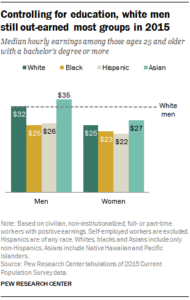A few months ago, Massachusetts pushed pay transparency forward when Governor Charlie Baker signed a law prohibiting employers from asking candidates about their salary history. The law, which also forbids companies from telling employees not to discuss their salaries, is designed to support equal pay for equal work — specifically targeting the pay gap between men and women.
This law will have an impact on recruiters in their day-to-day work identifying and negotiating with candidates. Talent acquisition experts are often on the front lines of addressing compensation variances and gaps, which can lead to workplace inequality. But it’s hard to address inequalities like the wage gap when discrimination isn’t necessarily intentional. Instead, the problem is often due to perpetuating the status quo: relying on salary history to structure compensation locks in lower pay for women.
The recent law is a promising blueprint for change, empowering recruiters to directly address pay inequality.
But it’s also much more than that. Shifting the conversation around compensation at the interview stage has far-reaching benefits throughout the employee lifecycle: it can improve your organizational culture, your bottom line and the economy as a whole.
In other words, getting rid of a seemingly small question — “What is your current salary?” — goes a long way.
Promote a Culture of Transparency
With more laws like Massachusetts’ around pay transparency, employees are beginning to feel more comfortable about discussing salary with their peers and managers. I would venture to say that few employers want to be in a situation where employees find out about a pay gap during these discussions.
If your organization wants to embrace a culture of transparency, a law like Massachusetts’ is a strong starter guide. By relying on skill, experience, and budget to determine salary for a candidate — and not just on previous compensation — you’re communicating the culture before they’re even hired. This is attractive to prospective employees, and can have a ripple effect in terms of the type of people you hire and the kind of communication you endorse company-wide.
Even for companies that may not be able to compete for talent monetarily, like non-profits, transparency can improve engagement and retention. A study from Payscale found that even when employees are paid below market rate, an astonishing 82 percent of them remained satisfied at their jobs after receiving explanations from their employers. Creating a pay scale based on performance that is equally measured with peers provides clarity and knowledge of their career path.
Encourage a Data-Driven Compensation Strategy
In most cases, asking about previous salary isn’t intentionally discriminatory. It became a standard in order for recruiters to gauge a balance — “How much does the candidate need to join the company, and how much can we afford as an employer?” But today, such anecdotal, individual decisions are not only harming candidates, they’re harming your bottom line, too. A policy like the Massachusetts law encourages recruiters to take a new approach: data.
By crunching the numbers, you can discover where compensation does or doesn’t align with business results, compare your internal strategy to the market and restructure accordingly. You may find new ways to stay competitive in the market. You may create a new data-driven bonus structure. You may discover wage gaps you didn’t know existed, and have valuable conversations around steps to address such gaps.
Employees increasingly have access to data, too. Sites like Comparably, Glassdoor, and Salary.com pull data from a wide swath of organizations to paint a picture of fair compensation. As a recruiter, you should be excited to replace the “previous salary” question with data — benefitting both your prospective employees and your employer. Remove the awkward conversation and make it one around their worth and value.
Contribute to Individual and National Economic Growth
The Massachusetts law started with the gender pay gap, but it impacts all types of groups of individuals that should be paid fairly for the work that they’re doing. There are still major wage gaps across gender and race in our country. According to Pew Research Center, women earn just 83 percent as much as men and blacks earn 75 percent as much as whites; and these numbers only shift slightly when controlling for education.

Providing equal pay for equal work among these groups improves economic security not only for individuals, but for the country as a whole. For example, analysis from the Institute for Women’s Policy Research found that equal pay would cut the poverty rate for women in half — from 8.1 percent to 3.9 percent. In 2012, equal pay would have also produced an additional $447.6 billion (2.9 percent of the U.S. GDP).
The Massachusetts law falls in line with a trend in recruiting to empower candidates based on their potential, not their past, and subsequently power the economy. “Ban the Box,” a similar movement that encouraged employers not to ask about criminal records, promises similar economic impact: increasing the employment rate of people with felonies and prison records could increase the U.S. annual GDP by $87 billion.
Recruiters are being called to no longer ask who or where somebody was to determine who or where they could be. By embracing the tenets of the Massachusetts law — whether it legally impacts your organization or not — you can take a step toward greater inclusion and growth.
